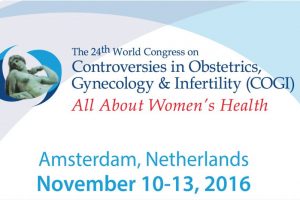The scientific director, Dr. Rita Vassena, explained the advantages of performing a Genetic Compatibility Test before conceiving a baby.
Last weekend, Amsterdam hosted the 24th International Congress on Controversies in Obstetrics, Gynecology and Infertility entitled All about Women's Health. The event, which is attended by doctors and experts in the field from all over the world, brings to the table the latest techniques and breakthroughs in assisted reproduction in order to discuss the suitability of their application.
Against this backdrop, Eugin's scientific director, Dr. Rita Vassena, participated in one of the main forums for debate, together with the renowned Dr Sjoerd Repping, of the University of Amsterdam. In a talk entitled "Expanded genetic carrier screening: should we propose it to everybody?" Dr. Vassena explained in detail Eugin's experience in the application of the Genetic Compatibility Test on patients.
Reducing the risk of transmitting diseases to the baby
The Genetic Compatibility Test is a study of the DNA of the future parents that allows us to detect whether the man or woman are carriers of a genetic disease and can therefore pass it on to their children.
"Today, medicine allows us to offer tools like this test on patients, which drastically reduce the risk of their future babies having serious inherited diseases," explains Dr. Vassena. "Our goal is to ensure that healthy children are born through Assisted Reproduction," she says, "thus, we were the first in Europe to apply this type of Genetic Compatibility Test to our entire egg donor programme".
